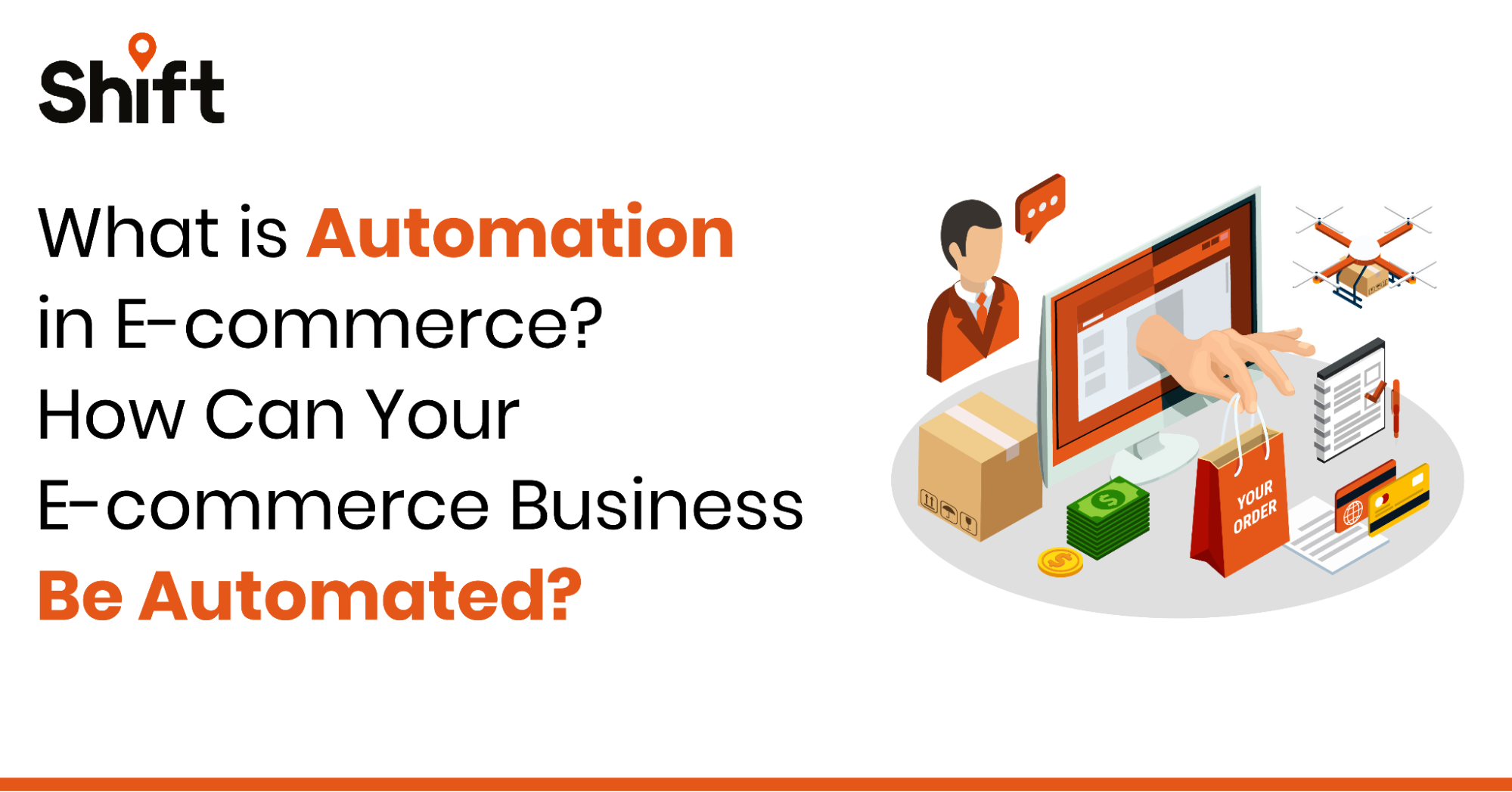What is Automation in E-commerce? How Can Your E-commerce Business Be Automated?

What is e-commerce automation?
Ecommerce automation refers to the use of software and technology to streamline and automate various tasks and processes in an online retail business. It involves using tools and systems to eliminate manual and repetitive tasks, improve efficiency, and enhance overall productivity in an ecommerce operation.
What are some Key elements of Ecommerce Automation:
How Does Ecommerce Automation Work?
Ecommerce automation follows a similar set of steps to streamline operations:
- Trigger.
- Condition.
- Action.
Let’s consider an example where you run an online electronics store and want to offer customized discounts based on customer behavior:
- Platinum customers: Make more than 10 purchases and receive a 15% discount.
- Gold customers: Make 5 to 10 purchases and receive a 10% discount.
- Silver customers: Make 1 to 4 purchases and receive a 5% discount.
Here’s how the automated workflow would function for a platinum customer:
- Trigger: When a customer places an order.
- Condition: If the customer has made more than 10 purchases.
- Action: Categorize the customer as a Platinum member.
By implementing ecommerce automation, sellers can eliminate the need for manual interventions. This streamlined process allows sellers to efficiently manage their operations and provide personalized discounts to customers without the need for manual tracking or calculations.
Which Processes Should You Automate?
When deciding which processes to automate in ecommerce, consider the following factors:
- Look for processes involving three or more people, indicating potential inefficiency, human error, and communication issues that automation can address effectively.
- Requirement for integration across multiple platforms, reducing the risk of data loss and errors associated with manual data transfer.
- Triggered by specific actions or events, making them suitable for automation to ensure timely and accurate execution.
Examples of Ecommerce automations:
Sales and Marketing:
- Automated email campaigns for abandoned carts: Automatically send follow-up emails to customers who have abandoned their shopping carts, reminding them of their pending purchases and potentially offering a discount to encourage completion.
- Personalized recommendations: Utilize automated algorithms to analyze customer browsing and purchase history, generating personalized product recommendations to display on the website or send via email.
Inventory and Fulfillment:
- Automated inventory management: Implement a system that monitors inventory levels in real-time and generates purchase orders automatically when stock reaches a predefined threshold, ensuring timely restocking and avoiding out-of-stock situations.
- Order assignment based on proximity: Automatically assign customer orders to the nearest warehouse or drop-shipper for efficient and cost-effective Order Fulfillment solutions in India, optimizing shipping times and reducing logistics costs.
Conclusion:
In conclusion, ecommerce automation offers significant benefits by improving efficiency, enhancing the customer experience and streamlining operations. Tasks such as email campaigns, personalized recommendations, inventory management, and order assignment can be executed more efficiently, saving time and reducing errors.
Partnering with Shift, a leading provider of automated logistics solutions, further enhances these advantages. Shift’s automation capabilities optimize supply chain processes, including warehousing, inventory management, Order Fulfillment solutions in India, and shipping. With advanced technologies and seamless integration, Shift enables faster order processing, improved inventory accuracy, and enhanced visibility. By entrusting logistics operations to Shift, businesses can focus on core activities and achieve greater success.